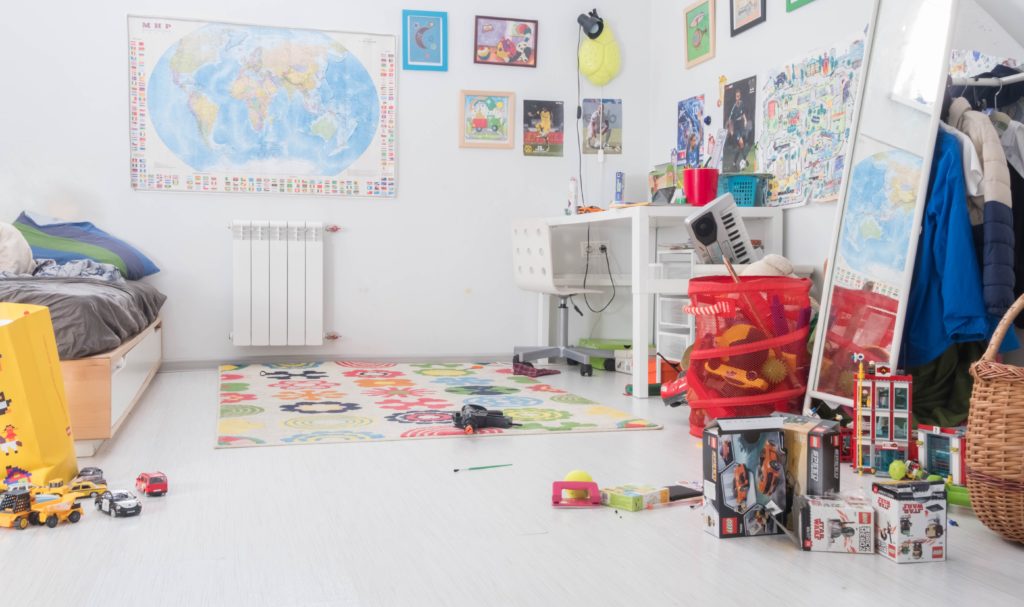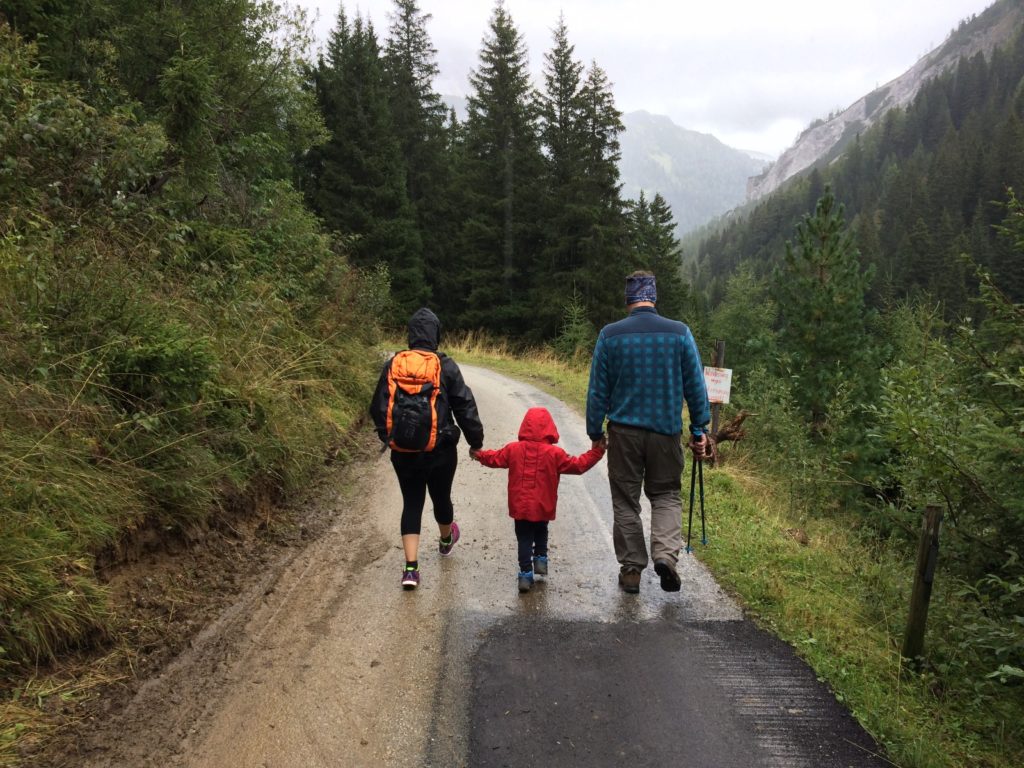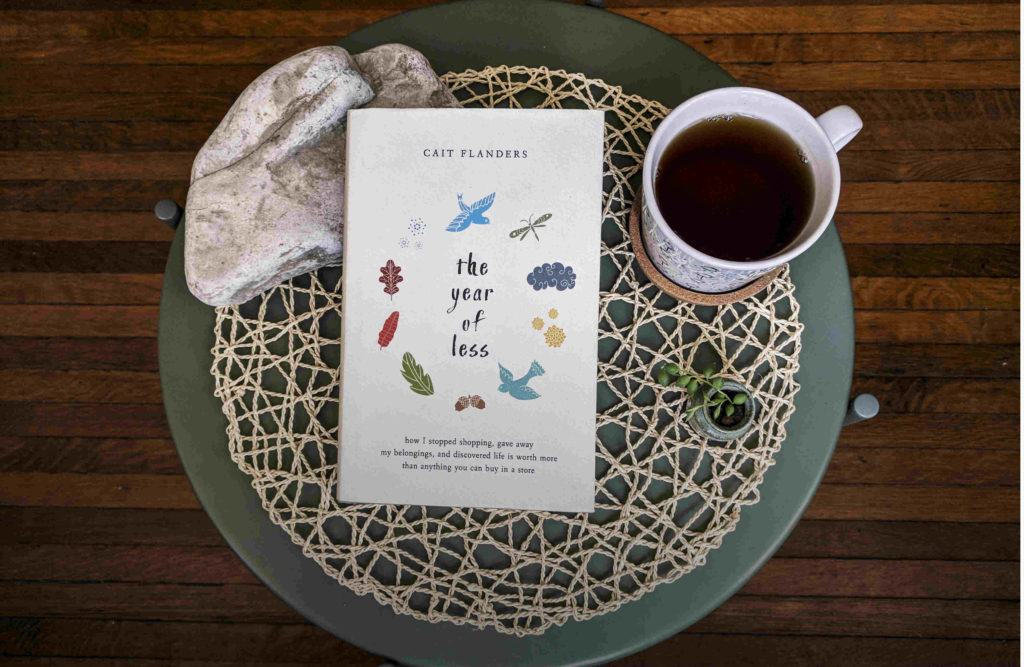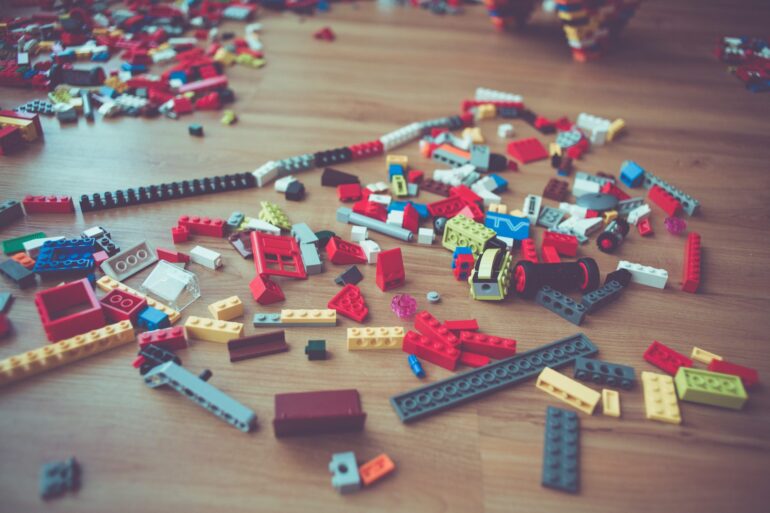Minimalism has become a trendy topic this millennium but exploded to the mainstream with Marie Kondo‘s 2014 book “The Life-Changing Magic of Tidying Up: The Japanese Art of Decluttering and Organizing”. The concept has been around for a while, but Kondo’s New York Times bestselling book brought to light what many Americans had been feeling — overwhelmed and drowning in their own stuff.
Now this growing community of minimalists have branched off and are showcasing how limiting our consumption can actually benefit multiple aspects of our lives and even our families.
Families and Minimalism

Applying minimalism throughout your household can be tricky, but it’s definitely worth the effort of examining what is important to you and each member of your family. Parents can easily get caught in the trap of too many toys — always buying the latest and greatest until kids’ rooms and whole houses are filled with clutter. And while it may seem harmless, clutter has increasingly been linked to anxiety. Children constantly surrounded by an overwhelming amount of stuff can have lower attention spans, exhibit less creativity, and show more frustration.
While toys are important to a child’s development, owning fewer toys can prove beneficial. Having fewer toys “allows children to engage more deeply in play where they can develop their imagination unobstructed and come up with different scenarios to interact with the physical and social elements of their environment,” said Douglas Haddad, a teacher based in Connecticut and author of the book “The Ultimate Guide to Raising Teens and Tweens: Strategies for Unlocking Your Child’s Full Potential.”
“Attention is fundamental to quality play,” Haddad said. “When distractions are introduced, they take away opportunities for a child to explore their world to discover challenges and acquire new skills. Overall, engaging in quality play enhances a child’s cognitive, emotional, social, and physical skills.”
Clutter-induced anxiety can affect parents, as can the financial strain that comes with buying too much stuff. If you’re having trouble getting a footing on financial minimalism UBank has put out a helpful guide to free yourself from guilt and set yourself on the right track toward financial minimalism.
Remember That Each Family Member Has a Say
It’s important to remember that there are no hard and fast rules when it comes to trying to follow a minimalist lifestyle. Each member of the family has a different threshold for what they feel to be “enough” and each voice should be heard — no matter how little it may be. If one member takes charge and steamrolls everyone else into submission, you may find yourself in a worse position than when you started. For those with smaller children, here is a great resource to help guide them in the decluttering process.
Start by removing any toys that your child has outgrown (be sure to donate, not toss them!), as well as broken toys. Involve your child in the process, value their opinion, and go slow. At first they may not want to get rid of anything (and that’s natural). But as time goes on, they may surprise you by decluttering on their own, knowing easily which toys they value the most. It’s important to also remember that once a possession has been gifted to an individual, it is up to the recipient whether they find it valuable or not — not the gifter.
What’s Next?
Minimalism unfortunately is not a one-time decluttering event. To truly experience the long-term benefits of minimalism, there has to be a conscious and consistent effort of answering the question: “What is important to me and my family?” But to really answer this question, you once again need to hear from the entire family without putting one person’s priorities above another’s.
Ensure that clutter stays at bay by having your children clean up after themselves. Giving your child chores, especially from an early age, can even benefit them later in life according to a study from the University of Minnesota. And while not all kids eagerly accept the addition of household chores into their regime, here is a helpful guide to getting kids excited to help out around the house.
Experiences Over Things

Now that you’re committed to buying fewer material possessions for your child, giving them the gift of experiences is a great way to connect. Learn about what they’re interested in and expand what they know by visiting museums, theme parks, theaters, observatories and more. Contact your local college to see if their science department will put on a special science experiment. If you have a smaller budget, visit state or national parks in your area where kids can learn about the history of an area, wildlife, camping skills and more.
Instilling the importance of experiences over tangible goods is a lifelong benefit that many Millennials have realized in adulthood. Teaching this to younger generations will give them a head start in leading a life freed from being owned by their stuff.
Success Stories

If this has resonated with you, but you still need that last push to hear about minimalism in action, below are some success stories from individuals implementing minimalist practices that worked for them:
- Perhaps one of the most well-known minimalists, Joshua Becker started exploring the movement in the early 2000s when he was overwhelmed with the process of constantly tidying his things. His book, “The More of Less” details his journey into minimalism.
- For those looking for financial freedom, Cait Flanders spent a year buying nothing that wasn’t on her essential list. Her book, “The Year of Less” explores the time it takes to change one’s perspective, and how the material items that we once held so dear, might not be the most important.
- In Fumio Sasaki’s book, “Goodbye, Things: The New Japanese Minimalism,” Sasaki shares his vulnerable journey of recognizing what’s important in his life while also contributing helpful tips on how readers can do their own decluttering.
And if you’re ready to start on your own minimalist journey but don’t know how to begin, Denaye Barahona of Simple Families has a free workshop to help get you started.
More From Better:
- How to Talk to Hesitant Family and Friends about Getting Vaccinated
- Paul Nicklen, Cristina Mittermeier, Bill Kurtis and Donna LaPietra: 4 Eco-Warriors on How to Save Our Oceans and Planet Now
- How My Disabled Son Has Given Me Hope During the Pandemic
 Lauren Bowman is a travel enthusiast, book lover, and minimalist based in Georgia. She loves experiencing new cultures, trying new foods, lending libraries, and learning about the world around her. Follow her on Instagram/Twitter @lbowmantravels.
Lauren Bowman is a travel enthusiast, book lover, and minimalist based in Georgia. She loves experiencing new cultures, trying new foods, lending libraries, and learning about the world around her. Follow her on Instagram/Twitter @lbowmantravels.

